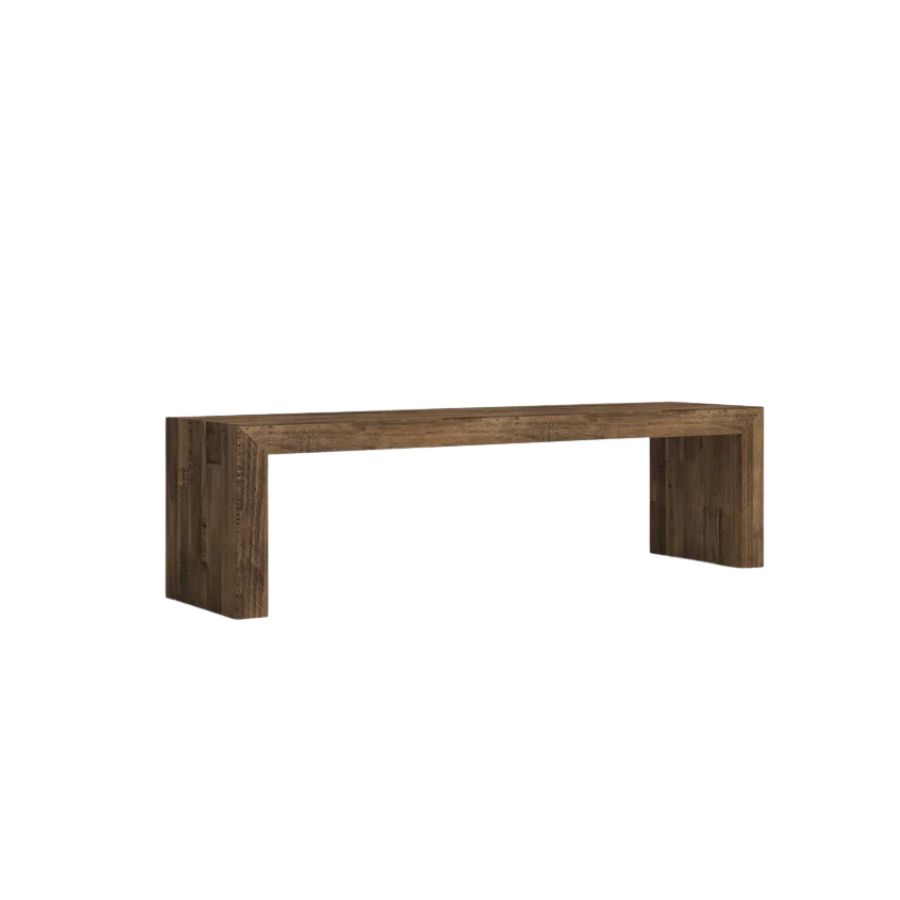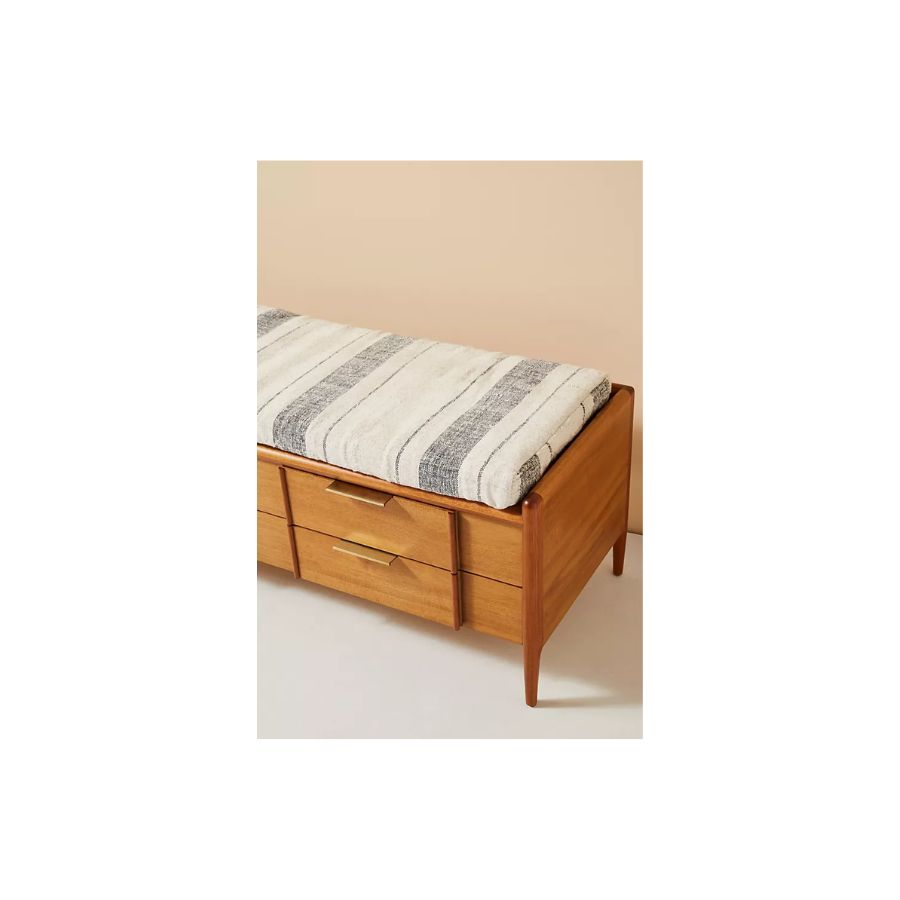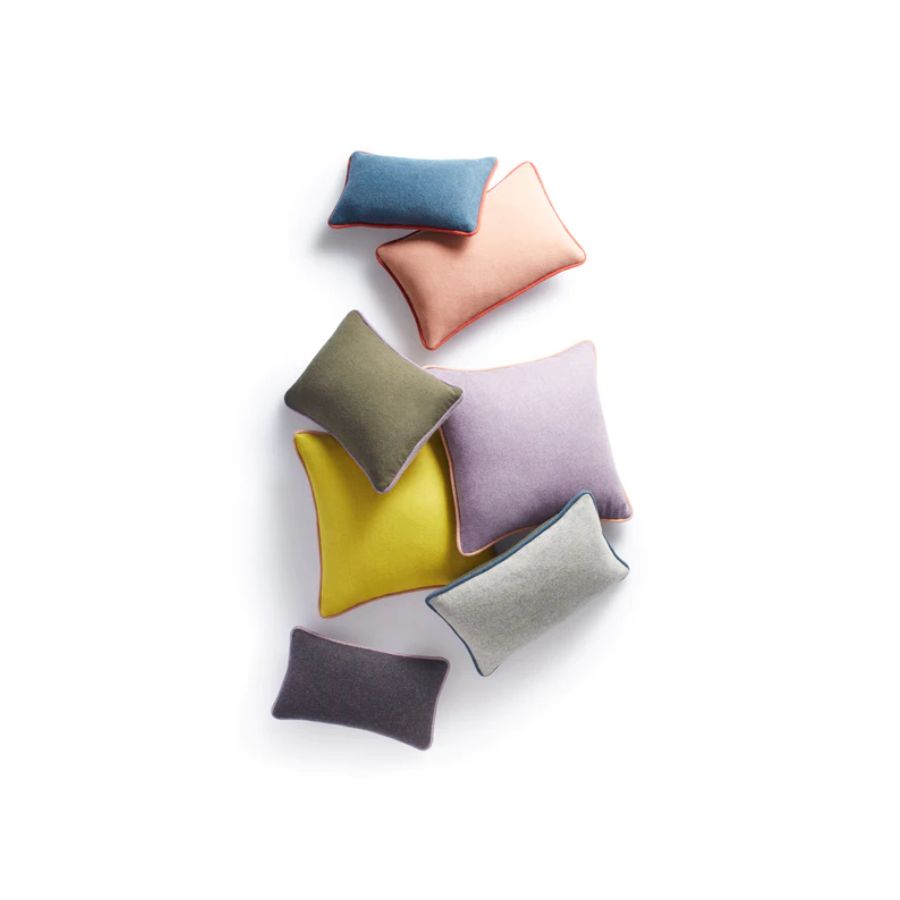I was surprised to see this couch-less living room layout, but it’s perfect for a minimalist yet practical space
I spoke to one interior architect who created a beautiful seating solution that removes the need for a sofa, takes very little space, and looks incredibly chic
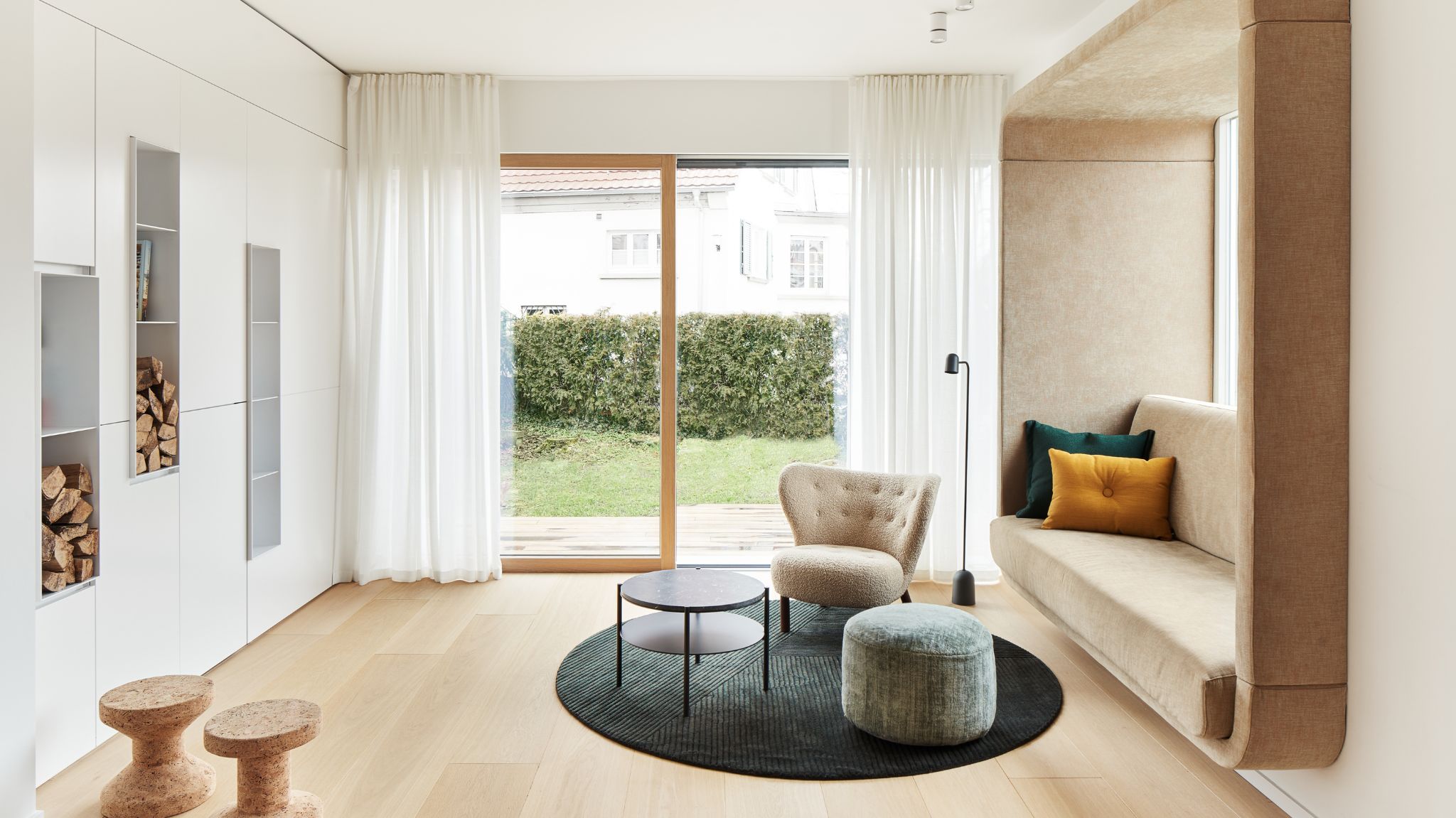
While there will always be new interior trends and ideas to play with, there are some things that pretty much stay the same. It’s hard to imagine a living room without a sofa. Isn’t it? Even when it comes to minimalism in interior design, we’re used to seeing freestanding furniture that fits the scheme. It might be less furniture, but it’s still there.
Well, there is one interior architect who challenges the status quo of what we might expect to see in a clean, sleek space and who comes with a different design proposal.
In Villa L by Studio Alexander Fehre the brief was to create a space that is different. Here is what Alexander Fehre did differently.
The new seating solution to replace your sofa
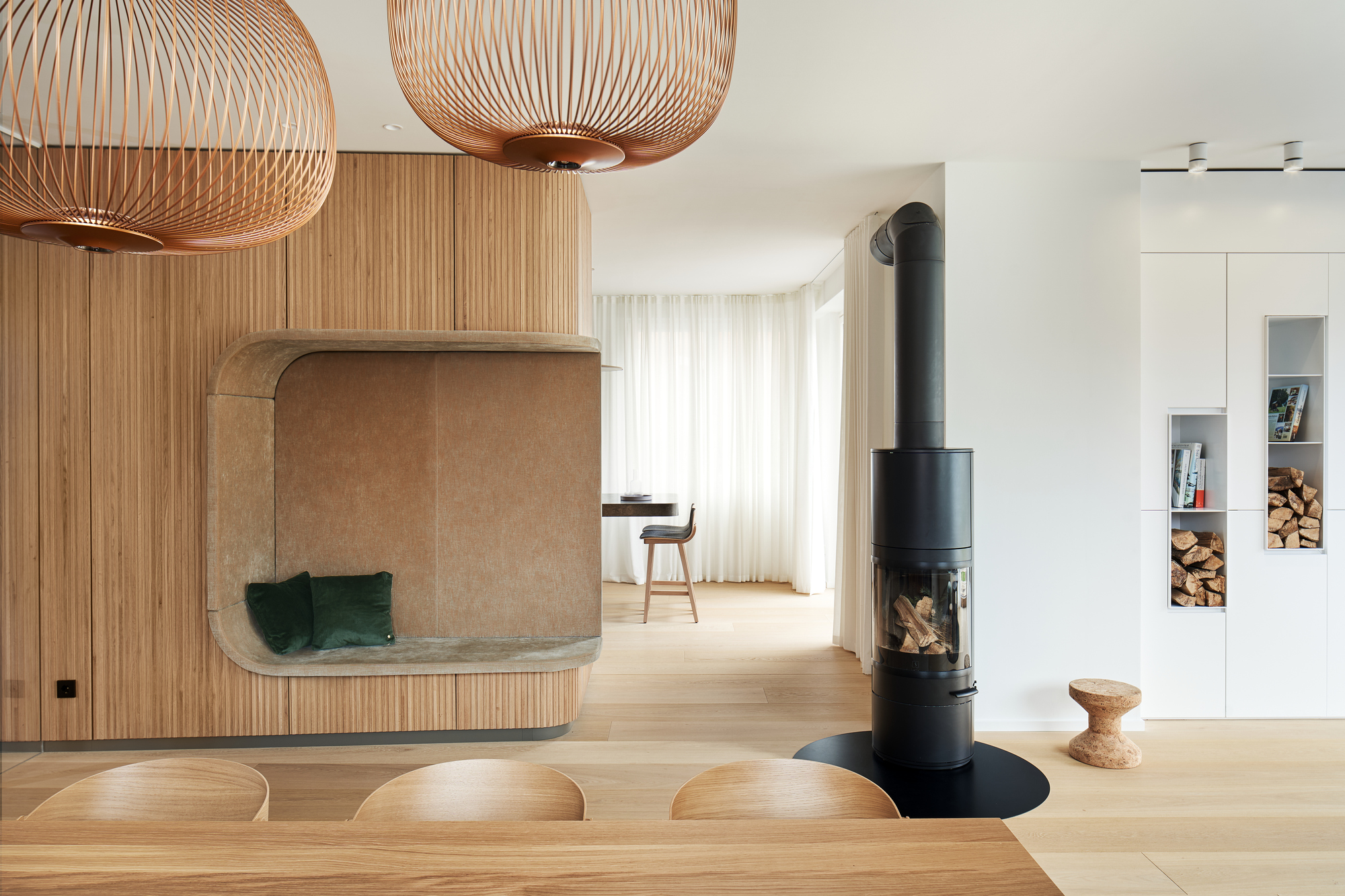
Villa L by Studio Alexander Fehre is an example of minimalism done very well. Its clean, elegant lines and simple colors are used in such a way that they create a warm, inviting feel. For a family home, it’s impressive to see the mix of beautiful design with innovative use of space that will serve all household members.
What my eye was drawn to instantly was the minimalist living room. There, I noticed that one common piece of furniture - the sofa - was missing. Instead, a seating niche is fixed to the wall and creates almost a cocoon around those inside it. It’s wide enough to be comfortable and placed in front of a window it creates a lovely picture frame effect of the landscape outside, making this a very restful space.
I asked Alexander why he decided to use the seating niche instead of a sofa. ‘It was the brief of the client not to plan a typical living room with a freestanding sofa. They also wanted to have everything hidden and clean,’ he tells me.
It's not a surprise that the niche made of carpentry and bespoke cushioning is as comfortable as it looks.
Be The First To Know
The Livingetc newsletters are your inside source for what’s shaping interiors now - and what’s next. Discover trend forecasts, smart style ideas, and curated shopping inspiration that brings design to life. Subscribe today and stay ahead of the curve.
I love it! But where else can I use it?
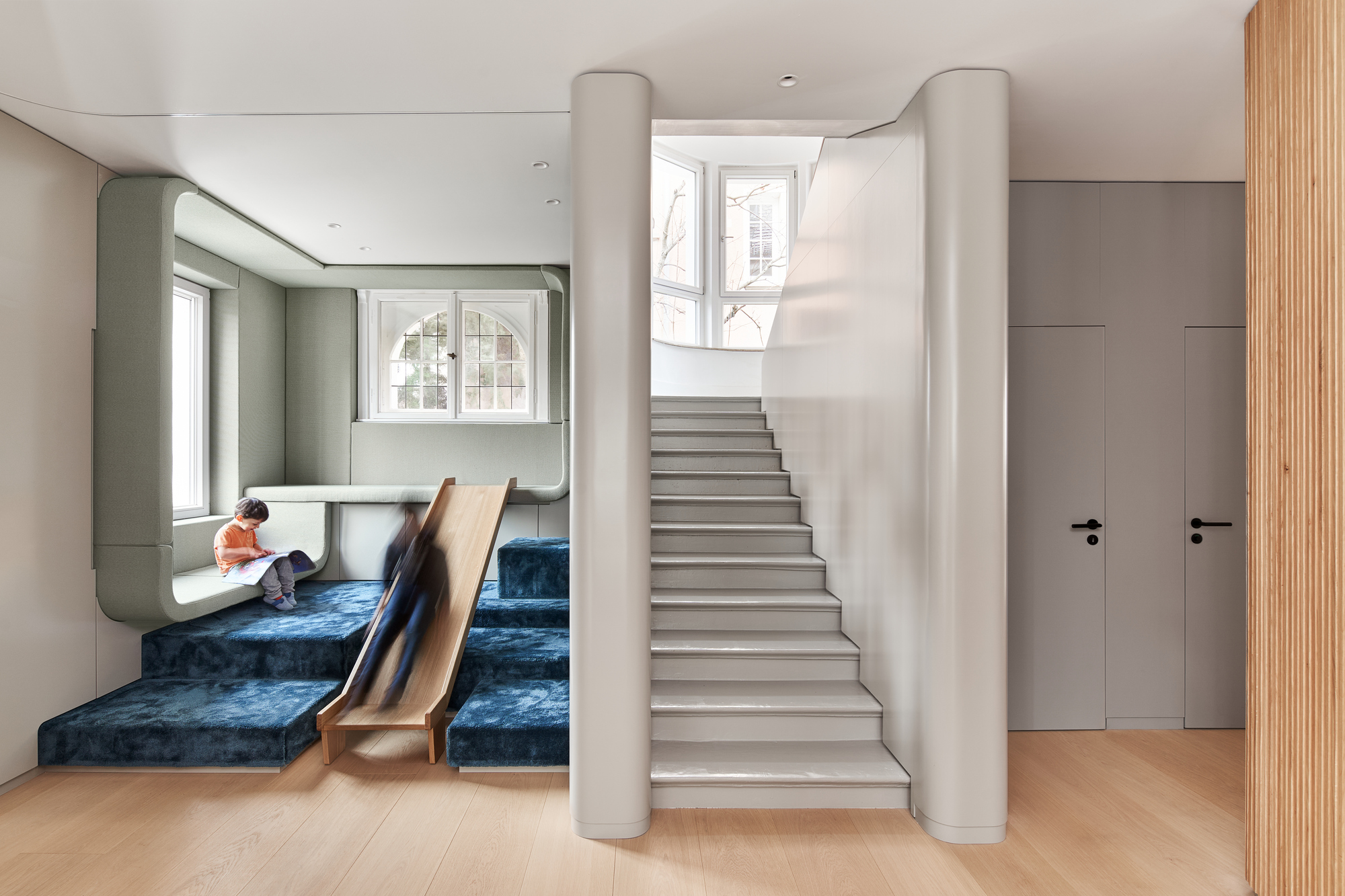
The beauty of this piece of design is its versatility. Due to its sleek look, a seating niche can be designed to fit into any room of your home, from your living room, dining room, and kitchen, to the kids’ playroom.
‘It’s built into the wall and the dividing furniture. Therefore it belongs more to the house's architecture and leaves the center stage to focus on the fireplace, the dining table, and so on. It gives also a warm and cozy atmosphere as it is built in and not moveable,’ explains Alexander.
I’m definitely convinced and can see this becoming more and more popular in the modern home. It looks great, it’s practical, and can be designed in such a way to suit the specific needs of any space, without drawing too much attention to it, but complementing the room. Design at its finest, I would say.
Here's how to recreate the look
Even if you can't have a custom-built seating niche like the ones in Studio Alexander Fehre's Villa L, you can still recreate the look on a window seat or a bench which can be tucked away. Remember to make it comfortable and cozy. Here are three things to buy to create that lovely seating niche vibe.
Raluca formerly worked at Livingetc.com and is now a contributor with a passion for all things interior and living beautifully. Coming from a background writing and styling shoots for fashion magazines such as Marie Claire Raluca’s love for design started at a very young age when her family’s favourite weekend activity was moving the furniture around the house ‘for fun’. Always happiest in creative environments in her spare time she loves designing mindful spaces and doing colour consultations. She finds the best inspiration in art, nature, and the way we live, and thinks that a home should serve our mental and emotional wellbeing as well as our lifestyle.
-
 The Weighted Blanket That Doesn’t Make You Sweat (and the Eye Mask to Match)
The Weighted Blanket That Doesn’t Make You Sweat (and the Eye Mask to Match)Luxury has weight. And apparently, volcanic minerals
By Julia Demer
-
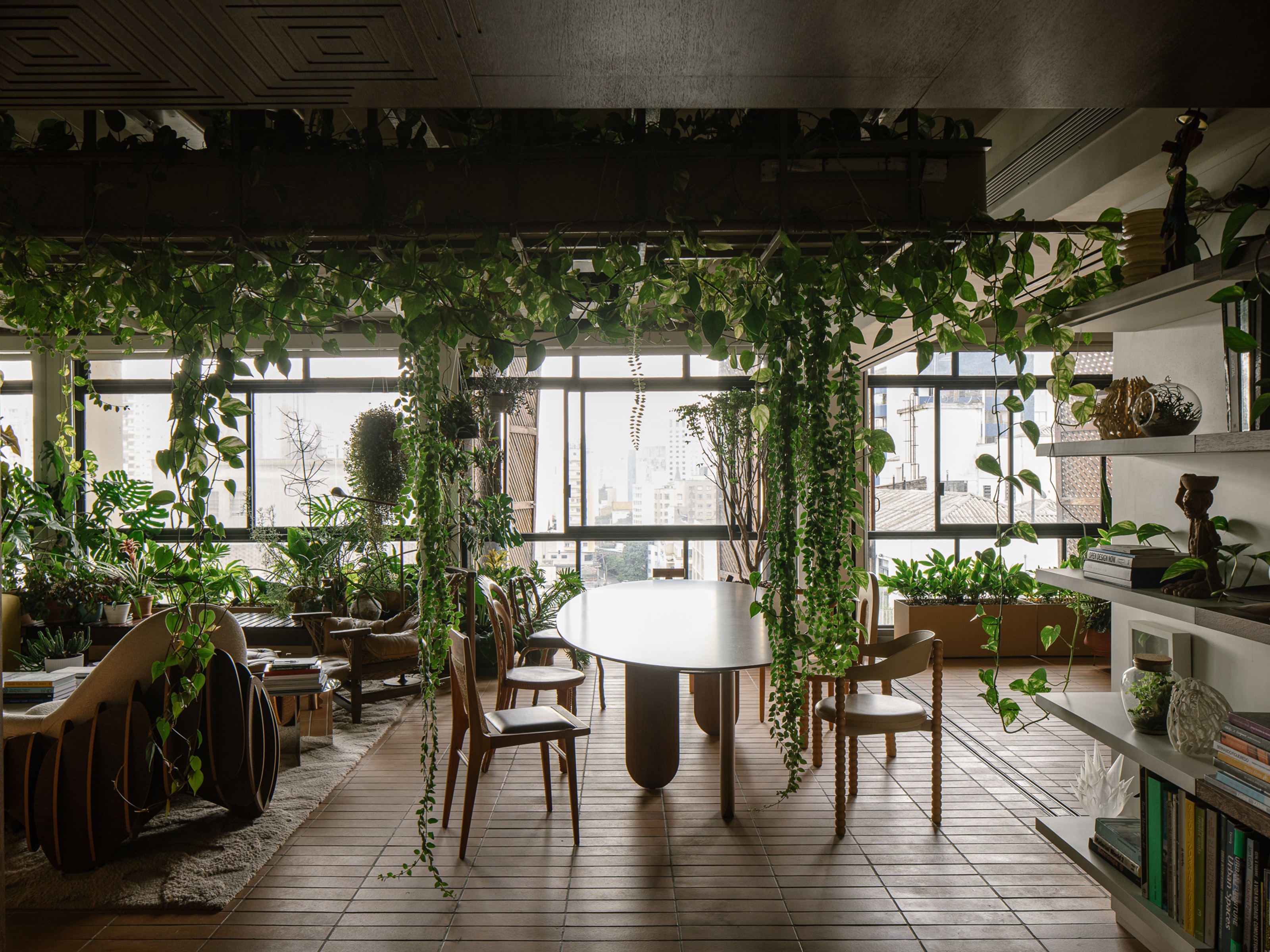 What Is Biophilic Interior Design? I'm an Actual Biophilic Designer, and This Is How to Apply It to Your Home
What Is Biophilic Interior Design? I'm an Actual Biophilic Designer, and This Is How to Apply It to Your HomeA biophilic designer explains the core principles of this practice, and the easy ways you can apply it to your home's design
By Marianna Popejoy
